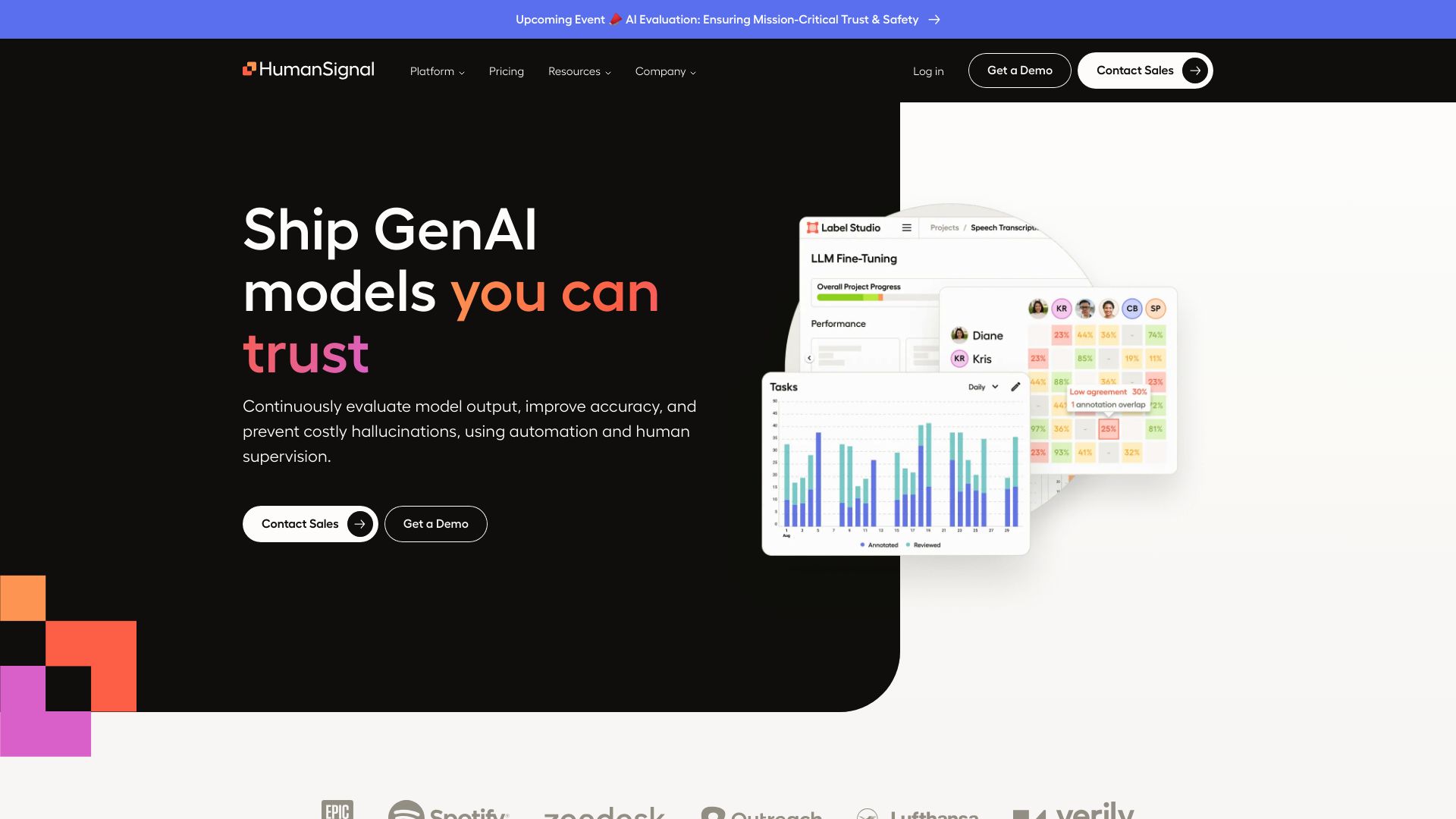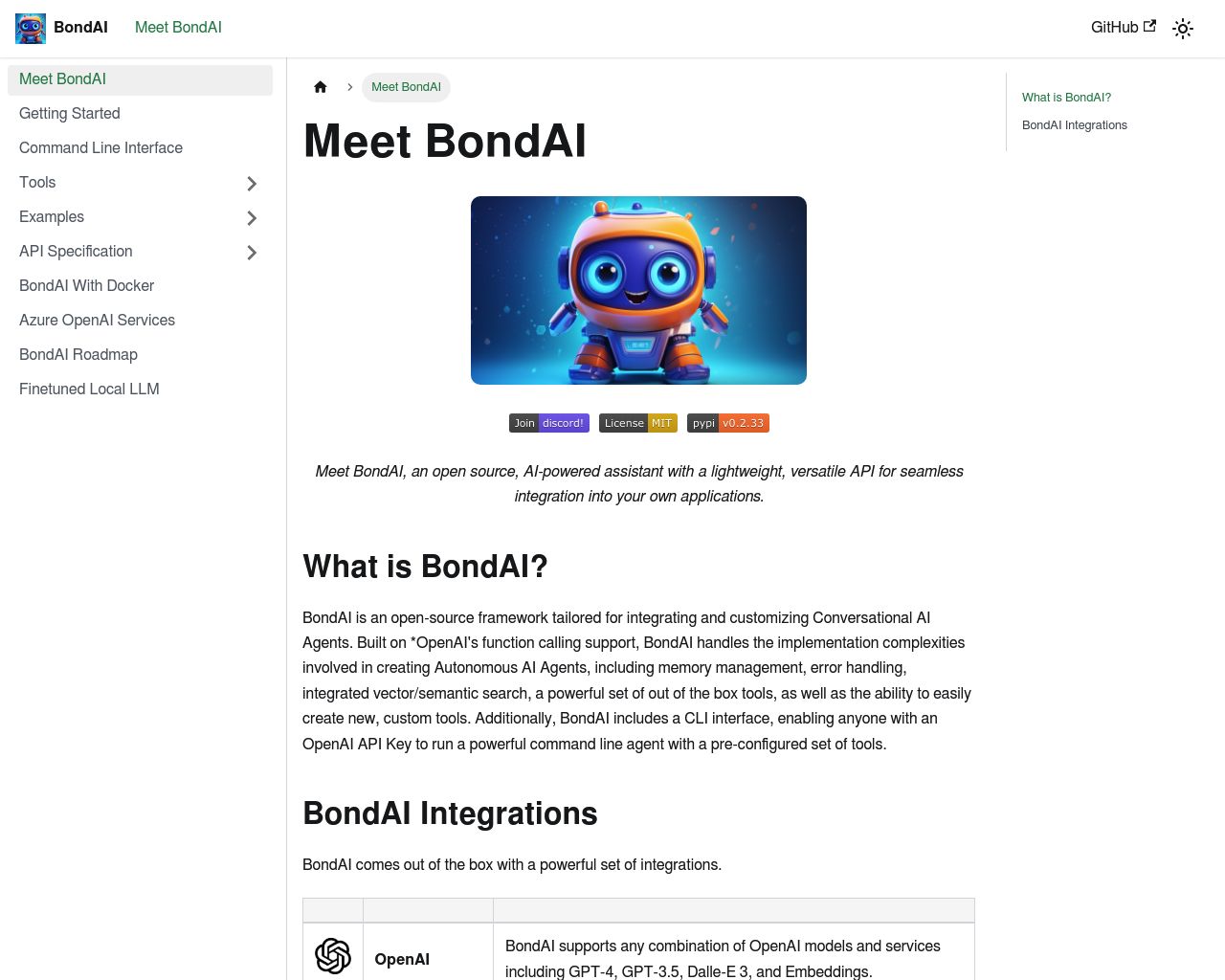Head-to-head: Adala vs BondAI – Unpacking the Pros and Cons
AI agent development stands at the forefront of technological innovation, with platforms like Adala and BondAI pushing the boundaries of what’s possible. Adala revolutionizes data labeling through autonomous AI agents, while BondAI empowers developers to create sophisticated AI systems with advanced memory management. This comparison delves into the strengths and limitations of each platform, exploring their unique approaches to AI development, integration capabilities, and potential applications across industries. We’ll examine how these tools stack up against SmythOS, our comprehensive AI development platform, to help you make an informed decision for your AI projects. Whether you’re a data scientist, developer, or business leader, this analysis will guide you through the key features and considerations for choosing the right AI development solution.
Adala Overview
Adala revolutionizes data labeling with its open-source framework for autonomous AI agents. These agents learn from ground truth datasets, evolving into efficient prediction engines for large-scale labeling tasks. Adala’s approach combines machine intelligence with human expertise, ensuring accurate and scalable data labeling processes.
Adala revolutionizes data labeling with its open-source framework for autonomous AI agents… ensuring accurate and scalable data labeling processes.


Developed by Adala, formerly known as Heartex, this platform caters to data scientists and AI researchers seeking to streamline their labeling workflows. Adala supports various data types, including text, video, and images, making it versatile for diverse machine learning projects. The framework emphasizes iterative learning, allowing agents to refine their performance over time.
Adala supports various data types… making it versatile for diverse machine learning projects. The framework emphasizes iterative learning, allowing agents to refine their performance over time.
Adala’s strengths lie in its collaborative features and integration capabilities. The platform supports team-based workflows, enabling efficient management of large-scale projects. It seamlessly integrates with popular AI models and APIs, enhancing its flexibility and power. Security remains a priority, with data encryption and OAuth authentication ensuring protection of sensitive information.
While Adala excels in many areas, it lacks certain features found in some competitors. The absence of a visual builder or no-code editor may limit accessibility for non-technical users. Additionally, there’s no mention of specific debugging tools or an agent work scheduler, which could impact development efficiency for some teams.
Adala positions itself as a robust solution for organizations prioritizing data-centric AI development. Its open-source nature fosters community-driven innovation, while its focus on human-AI collaboration ensures the development of reliable, unbiased AI models. For teams looking to enhance their data labeling processes with advanced AI capabilities, Adala offers a compelling framework to explore.
BondAI Overview
BondAI empowers developers to create sophisticated AI agent systems through its open-source framework. The platform tackles complex implementation challenges like memory management, error handling, and semantic search, streamlining the development of autonomous AI agents.
BondAI integrates cutting-edge AI architectures, including ReAct Agents and ConversationalAgents inspired by the AutoGen framework. These advanced systems enable the creation of both individual agents and multi-agent systems capable of collaborating on complex tasks. The framework’s versatility allows seamless integration with popular services like OpenAI models, Microsoft Azure, Google Search, and LangChain, expanding its potential applications across research, trading, home automation, and customer support.
BondAI empowers developers to create sophisticated AI agent systems through its open-source framework. The platform tackles complex implementation challenges… streamlining the development of autonomous AI agents.


A standout feature of BondAI is its robust memory management system, inspired by the MemGPT paper. This tiered approach efficiently handles extensive contexts and complex conversations, utilizing core memory for immediate tasks, conversation memory for dialogue history, and archival memory for long-term data storage. This structure enhances the agents’ problem-solving capabilities by efficiently managing and retrieving information.
A standout feature of BondAI is its robust memory management system… This structure enhances the agents’ problem-solving capabilities by efficiently managing and retrieving information.
BondAI offers flexibility in implementation, allowing users to leverage the framework via a Command Line Interface (CLI), Docker containers, or direct integration into codebases for custom agent development. This versatility enables quick startup with pre-configured tools or the creation of tailored solutions.
While BondAI excels in providing a comprehensive toolkit for AI agent development, it may present a steeper learning curve for non-technical users compared to platforms with more visual, no-code options. The framework’s focus on advanced AI research and extensive tool integration positions it as an ideal choice for developers and researchers seeking to build powerful AI-driven applications, but it may require more technical expertise to fully utilize its capabilities.
Feature Comparison
Adala and BondAI offer distinct approaches to AI agent development, each with unique strengths and limitations. Adala excels in autonomous data labeling, providing a robust framework for training AI agents on diverse datasets. Its collaborative features and integration with popular AI models make it ideal for data-centric projects. BondAI, on the other hand, focuses on creating sophisticated AI agent systems with advanced memory management and problem-solving capabilities.
While both platforms support AI agents and multi-agent collaboration, BondAI’s implementation of ReAct Agents and ConversationalAgents inspired by the AutoGen framework gives it an edge in complex problem-solving scenarios. BondAI’s tiered memory system, based on the MemGPT paper, outperforms Adala’s more straightforward approach to agent memory and context.
In terms of security, both platforms offer data encryption and OAuth support. However, neither explicitly mentions IP control features, which we provide as an additional layer of security. Our constrained alignment capabilities ensure AI behavior aligns with organizational goals and ethical guidelines, a feature not prominently highlighted in either Adala or BondAI’s offerings.
Feature Comparison Table
| Adala | BondAI | SmythOS | |
|---|---|---|---|
| CORE FEATURES | |||
| Visual Builder | ❌ | ❌ | ✅ |
| No-Code Options | ❌ | ❌ | ✅ |
| Audit Logs for Analytics | ❌ | ❌ | ✅ |
| SECURITY | |||
| Constrained Alignment | ✅ | ❌ | ✅ |
| IP Control | ❌ | ❌ | ✅ |
| COMPONENTS | |||
| Data Lakes | ❌ | ❌ | ✅ |
| DEPLOYMENT OPTIONS (EMBODIMENTS) | |||
| Staging Domains | ❌ | ❌ | ✅ |
| Production Domains | ❌ | ✅ | ✅ |
| Deploy as Scheduled Agent | ❌ | ❌ | ✅ |
| DATA LAKE SUPPORT | |||
| Hosted Vector Database | ✅ | ❌ | ✅ |
| Sitemap Crawler | ❌ | ❌ | ✅ |
| YouTube Transcript Crawler | ❌ | ❌ | ✅ |
Best Alternative to Adala and BondAI
SmythOS stands out as the superior alternative to Adala and BondAI for AI agent development and deployment. Our platform offers a comprehensive suite of features that address the limitations of both competitors while providing unparalleled ease of use and versatility. SmythOS’s visual builder and no-code options democratize AI development, allowing users of all skill levels to create sophisticated agents without extensive programming knowledge. This accessibility, combined with our robust feature set, enables rapid prototyping and deployment of AI solutions across various industries.
SmythOS stands out as the superior alternative to Adala and BondAI for AI agent development and deployment… providing unparalleled ease of use and versatility.
Our platform excels in areas where Adala and BondAI fall short. While Adala focuses primarily on data labeling and BondAI on memory management, SmythOS provides a holistic approach to AI agent creation. We offer advanced multi-agent collaboration capabilities, seamless API integrations, and support for a wide range of AI models. This versatility allows users to tackle complex problems and automate diverse workflows more effectively than our competitors.
SmythOS provides a holistic approach to AI agent creation… allows users to tackle complex problems and automate diverse workflows more effectively than our competitors.
SmythOS’s deployment options surpass those of Adala and BondAI. We provide hosting for both development and production environments, along with staging and production domains. This flexibility ensures smooth transitions from testing to live deployment, a critical feature for businesses of all sizes. Additionally, our scheduled agent deployment option, absent in both Adala and BondAI, allows for automated, time-based task execution, further enhancing productivity and reducing manual oversight.
Security and scalability are paramount in SmythOS. We implement robust data encryption, OAuth support, and IP control features, addressing the growing concerns around data privacy and security in AI applications. Our platform’s scalability ensures that as your AI needs grow, SmythOS grows with you, supporting enterprise-level deployments without compromising performance or security.
By choosing SmythOS, users gain access to a cutting-edge AI development platform that combines ease of use with powerful features, outperforming both Adala and BondAI in versatility, scalability, and comprehensive AI agent development capabilities.
Conclusion
Adala and BondAI offer powerful frameworks for AI agent development, each with unique strengths. Adala excels in autonomous data labeling, while BondAI shines in creating sophisticated AI systems with advanced memory management. Both platforms provide valuable tools for specific use cases, but SmythOS emerges as the superior choice for most users.
SmythOS combines the best of both worlds and adds unparalleled versatility. Our drag-and-drop interface makes AI development accessible to users of all skill levels, while our extensive integration ecosystem supports over 300,000 connections. This allows for seamless incorporation of AI into existing workflows across various industries.
Unlike Adala and BondAI, SmythOS offers a comprehensive suite of deployment options. Our “Create Once, Deploy Anywhere” approach enables users to integrate AI agents into multiple environments effortlessly. Whether you need chatbots, APIs, or scheduled agents, SmythOS provides the flexibility to deploy AI solutions where they’re needed most.
We invite you to explore our diverse range of AI-powered agent templates and experience the future of AI development. Get started with SmythOS today and discover how our platform can transform your workflow, boost productivity, and drive innovation in your organization.
Last updated:
Disclaimer: The information presented in this article is for general informational purposes only and is provided as is. While we strive to keep the content up-to-date and accurate, we make no representations or warranties of any kind, express or implied, about the completeness, accuracy, reliability, suitability, or availability of the information contained in this article.
Any reliance you place on such information is strictly at your own risk. We reserve the right to make additions, deletions, or modifications to the contents of this article at any time without prior notice.
In no event will we be liable for any loss or damage including without limitation, indirect or consequential loss or damage, or any loss or damage whatsoever arising from loss of data, profits, or any other loss not specified herein arising out of, or in connection with, the use of this article.
Despite our best efforts, this article may contain oversights, errors, or omissions. If you notice any inaccuracies or have concerns about the content, please report them through our content feedback form. Your input helps us maintain the quality and reliability of our information.
